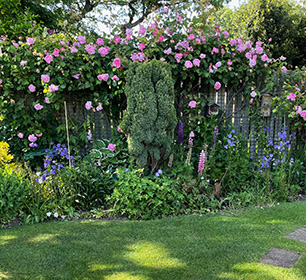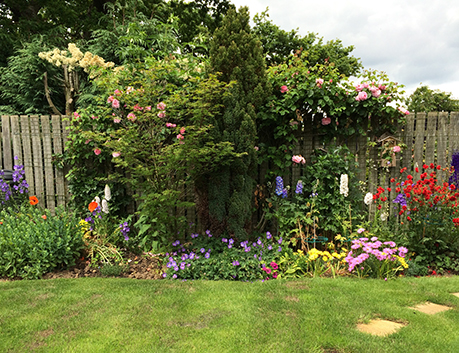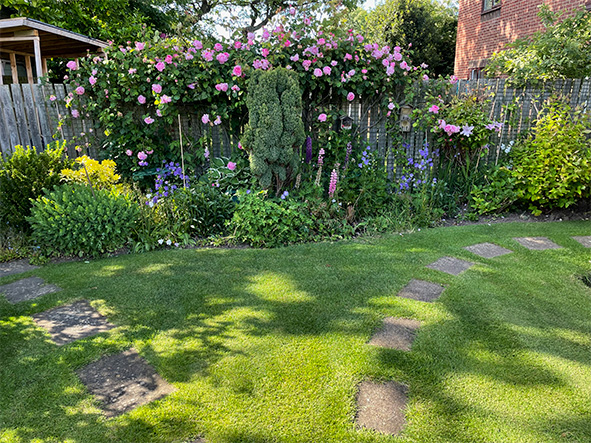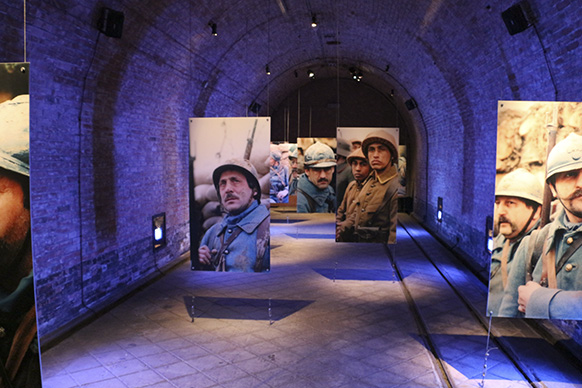
Last week I killed a good friend. He was a beloved companion for around thirty-eight years. Now hold on! Before you call the cops, I should explain that the name of my good friend was chamaecyparis — a false cypress. It was a dwarf variety, although it grew to nine or ten feet. Over the years it got damaged by disease or weather, and several times I severely pruned large dead sections, in fact major limbs had to be cut away. For several years now it’s been around five feet, badly misshapen with cords unsuccessfully trying to force it upright; unattractive, sucking growth from nearby plants.
Why has it taken so long to get rid of it? Shortly after moving into this house in 1986, we had a family activity. We visited a garden centre and the children were allowed to choose any plant they liked, to grow in our back garden. Four of them chose pretty flowers, but Zac picked a small shrub about a foot tall. It was quite attractive when small and grew very slowly, just a few inches a year.
Long after the pretty flowers were gone, long after the children left home, it was still there, a precious memory of Zac and happy times when our children were young. So we put up with it long after it should have gone. Last Thursday, with a tear in my eye, and a slight tug of guilt I finally took an axe to it, and now it’s no more 😢
I tend to hang on to things longer than I should. Maybe you do too. Old folk like me remember past pleasures, joys of achievement, activities when we were young and fit, beyond us now. There’s nothing wrong with this, unless taken to excess. Constantly living with regret and frustration for what we can’t do anymore isn’t healthy. For all of us, we should be rooted where we are now and celebrate what we can do, not what we can’t. In a conference address Elder Dieter F. Uchtdorf, now an Apostle but once a professional airline pilot, said this:
Several years ago, President Thomas S. Monson and I were offered an opportunity to tour Air Force One—the magnificent aircraft that transports the president of the United States. There were painstaking security checks by the Secret Service, and I smiled a little as agents searched our dear prophet prior to boarding.
Then the pilot in command invited me to take the captain’s seat. It was a remarkable experience to again sit at the helm of a wonderful flying machine like the kind I had flown for so many years. Memories of flights across oceans and continents filled my heart and mind. I envisioned exciting takeoffs and landings at airports all over the world.
Almost unconsciously, I placed my hands on the four throttles of the 747. Just then, a beloved and unmistakable voice came from behind—the voice of Thomas S. Monson.
“Dieter,” he said, “don’t even think about it.”
I’m not admitting to anything, but it just may be that President Monson read my mind.
(President Dieter F. Uchtdorf, then Second Counsellor in the First Presidency, “Are You Sleeping through the Restoration?” April 2014 General Conference)
Re-living the past can be helpful, and of course we can learn from past successes and failures. But it can become obsessive. A good new year resolution might be: live in the present, don’t dwell on the past, and don’t fret about the future. Living in the present is active, not passive, and requires commitment and effort. Sleeping the present away like Rip Van Winkle in Elder Uchtdorf’s talk is just as bad, perhaps even worse, than living in the past or vain dreams of glory for great things in the future. Jesus had a few things to say about it in the Sermon on the Mount:
Matthew 6:
31 Therefore take no thought, saying, What shall we eat? or, What shall we drink? or, Wherewithal shall we be clothed?
32 (For after all these things do the Gentiles seek:) for your heavenly Father knoweth that ye have need of all these things.
33 But seek ye first the kingdom of God, and his righteousness; and all these things shall be added unto you.
34 Take therefore no thought for the morrow: for the morrow shall take thought for the things of itself. Sufficient unto the day is the evil thereof
We need goals, plans and direction of course, and lots of hard work. The scripture gives a clue how to do it: “seek ye first the kingdom of God, and his righteousness; and all these things shall be added unto you.” Whatever our age, condition, skills, or hopes for the future, Jesus Christ should be part of our life — in fact not just part, but the foundation. We need the serene security of his peace, the confidence his Spirit confers. Through him we can remember the past with gratitude not grief, face the future with hope not anxiety, and live the present with faith not pessimism.
John 14:
27 Peace I leave with you, my peace I give unto you: not as the world giveth, give I unto you. Let not your heart be troubled, neither let it be afraid.



